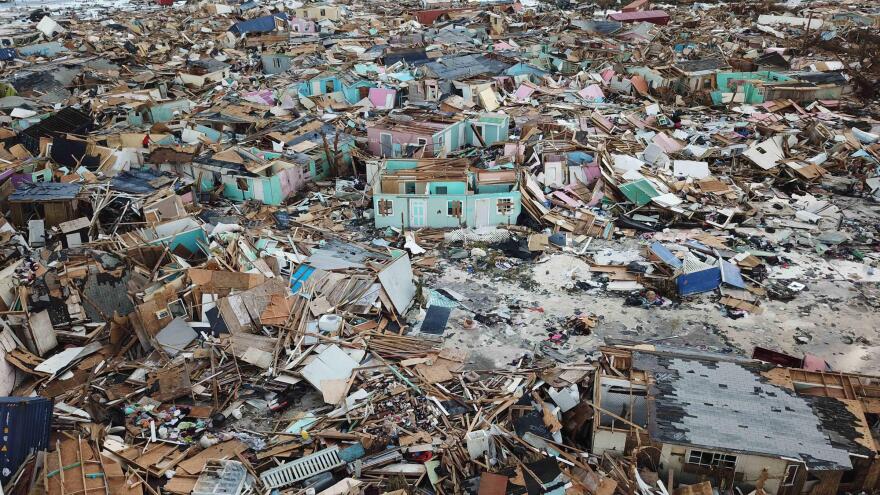Among scientists, conveying uncertainty in predictions over sea rise, increasing temperatures and other impacts linked to climate change — without suggesting doubt — remains a nagging challenge.
“How well do we need to know the future?” Roger Pulwarty, a senior scientist who studies risk with the National Oceanic and Atmospheric Administration, said last month at a University of Miami climate symposium.
“We need to work and manage and predict our way through the future with the full understanding that we're not able to predict everything,” he said. “But our papers do not allow us to talk about indeterminacy because it says we are not as optimistic about the future.”

WLRN’s Jenny Staletovich spoke to Pulwarty about the challenge of convincing government and industry planners to spend money on projects to prepare for climate change.
Staletovich: So if you could explain a little bit about your research and what you do. You cross the physical sciences with social sciences. That may sound abstract to people, but to me it seems like it's really the nut of our dilemma.
Pulwarty: So I grew up in the southern Caribbean [on] the island that is the furthest south in the Caribbean, in the country of Trinidad and Tobago. I grew up on the island of Trinidad. I come from an agricultural family. My dad was an agronomist. And I grew up in a very small village in which you could see the direct impact of ... tropical storms and drought on people's livelihoods.
We had a lot of folks who were laborers in my village. We were reasonably, comparably well-off because my dad had a scientific job. But the whole idea of using science to help improve the lives of people started to be ingrained in me from a very early age. I could see how the economic work [my dad] was doing — the work on measuring rainfall and so on that the research centers were doing — were in fact helping local farmers.
One of the most important things we wanted to be able to do was to show that the investments that we were making in science, and observation and understanding, actually were paid back to the taxpayer. Paid back to people in terms of making them more aware, better prepared for changes in the environment, for extremes and for disasters. The idea behind doing that is then to identify a problem, whether it's hurricanes, droughts or floods, and say: What do we need to solve that societal risk.
You're really talking about convincing people to invest in averting risk. In Florida, the whole state is a risk. So how do you make that argument ... to either government managers or politicians?
I follow something in philosophy called a Socratic fallacy. And what the Socratic fallacy says is that if we are to agree on the mechanics of walking before we take a walk, we'll never take a walk together.
So what I try to do is understand where people are coming from, what their issues are, why they value certain things.
We show that if you invest $1 in avoiding a risk upfront, you save $4 to $6 in the long-term. We basically say that the place that you're living in, we want to make it sustainable. We want you to be living there as long as possible, and your children living there. That's where your history is. So how do we protect your cultural value, your economic value and your environmental value.
There's been discussion about the politics, and when scientists just do their research, collect their data and put it out there and then let it fall where it may. If I were a scientist, it would make me kind of mad that it would get torn apart by politics.
Two people in a room is politics. I don't throw my hands up at politics simply because politics is how we make sense of who gets what, when, where and how in the world. How we agree on what we ought to do is done through politics. So it doesn't faze me.
There's an old Chinese proverb that says, if we're not careful, we'll end up where we're going. We need to make sure that where we're going is where we want to go.
Is there anything else you can compare it to, this challenge of making decisions with uncertainty?
No. There is nothing on this scale that we've done. And the toughest thing for us to do is to be able to not kick the can down the road. We cannot be surprised by it. We cannot have the excuse of saying no one could have thought this would happen.
Copyright 2020 WLRN 91.3 FM. To see more, visit WLRN 91.3 FM. 9(MDAyNDY5ODMwMDEyMjg3NjMzMTE1ZjE2MA001))




